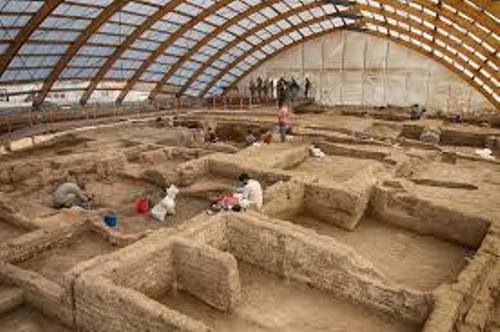10 Facts about Catal Huyuk
If you want to know the settlement in the southern Anatolia, check Facts about Catal Huyuk. The word was derived from Turkish. The word Catal means fork, while Huyuk means mound. Catal Huyuk is very important since it reflects Neolithic and Chalcolithic proto-city settlement. The heyday of this settlement was in 7000 BC. Actually this settlement can be traced back around 7500 BC to 5700 BC. Let’s find out other interesting facts about Catal Huyuk below:
Facts about Catal Huyuk 1: Neolithic site
The people who want to learn more about the Neolithic site should take a look at this Catal Huyuk. It is considered as the best preserved site. Moreover, it is also super large. It was included in UNESCO World Heritage Site in July 2012.
Facts about Catal Huyuk 2: the location of Catal Huyuk
Catal Huyuk is located around 87 miles or 140 kilometer from Mount Hasan. This volcano is famous with its twin cones. If you visit this site, you can spot the beauty of Konya Plain.
Facts about Catal Huyuk 3: a mound
At the time of the most recent Neolithic settlement, the mound was increased around 66 feet or 20 meter above the plain. At the east side, you can find out the Byzantine settlement and a smaller mound located at the west.
Facts about Catal Huyuk 4: before the Bronze Age
Before the Bronze Age, the people neglected the prehistoric mount occupations. The occupation was located at the alluvial clay because the people wanted to build the agricultural life. In the past, the area located between the two mounds was filled with Carsamba River.
Facts about Catal Huyuk 5: James Mellaart
In 1958, James Mellaart excavated Catal Huyuk for the first time. In 1961 until 1965, the excavation on the site was started under the guidance of Mellaart for four seasons.
Facts about Catal Huyuk 6: Anatolia
After the excavation, it was found out that Anatolia was the major part of the Neolithic site. Get facts about Box Hill here.
Facts about Catal Huyuk 7: Dorak affair
Because Mellaart took part in Dorak Affair, Turkish government banned him from the country.
Facts about Catal Huyuk 8: the layers
There are 18 consecutive layers found after the excavation was conducted. By checking the layers, the people find out the stages of occupations in the site.
Facts about Catal Huyuk 9: the top layer
The top layer of the excavation signifies the period of 5,600 BC. Get facts about Cahokia here.
Facts about Catal Huyuk 10: the bottom layer
The bottom layer presents the period of 7,500 BC.
Do you like reading facts about Catal Huyuk?





